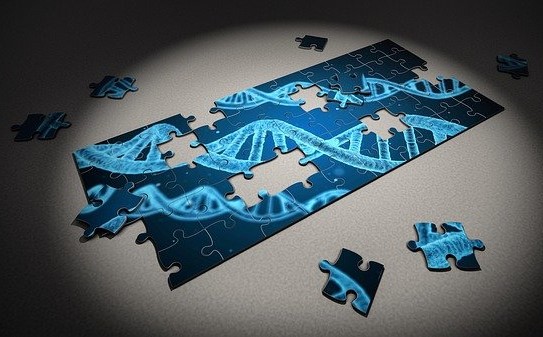This website uses cookies so that we can provide you with the best user experience possible. Cookie information is stored in your browser and performs functions such as recognising you when you return to our website and helping our team to understand which sections of the website you find most interesting and useful.
More than 400 patients diagnosed with the genetic cause responsible for diabetes

Diabetes is a disease that carries with it the risk of developing severe, sometimes life-threatening complications that can lead to damage to the eyes, kidneys, nervous system, or heart and cerebrovascular accidents. The approach in diagnosing and treating diabetes caused by a mutation of one particular gene is specific. This is a monogenic form of diabetes, and DNA analysis methods are essential to identify it.
The research team of scientists at the DIABGENE Laboratory of the Institute of Experimental Endocrinology of the Biomedical Research Center SAS is engaged in genetic studies of monogenic forms of diabetes. In the Laboratory, they introduce the latest methods of DNA diagnostics, which identifies the exact genetic cause of this disease. Diagnostics by means of state-of-the-art DNA analysis approaches have already helped more than 400 patients with the damaged gene responsible for developing diabetes. Determining the exact genetic cause of diabetes is extremely important because only by knowledge of the specific responsible gene identified by DNA analysis it is possible to change and adjust the treatment directly to a particular patient, and it is usually the most optimal, effective and has the least adverse effects (e.g. from insulin administration to pills or from pills for a rational diet).
“Since 2004, we have created a DNA bank on the premises of the Laboratory, where we currently register more than 1,500 patients with suspected monogenic diabetes. The DNA bank – i.e. DNA from patients with a clear clinical phenotype of monogenic diabetes, but not yet proven genetic cause – is an invaluable reservoir of genetic material that, which, in line with the current shift in knowledge, is immediately used to search for new, as yet undiscovered genes and gene variants leading to monogenic diabetes. This continually creates a patient resource for basic research into the molecular mechanisms that lead to the development of monogenic diabetes in humans,” explains RNDr. Daniela Gašperíková, DrSc., Scientific Director of the Institute of Experimental Endocrinology of the Biomedical Research Center SAS, under whose leadership the research is in progress.
 The DIABGENE Laboratory aims to keep up with top science in the field of diabetology at the European as well as world level and to apply this knowledge to everyday clinical practice. In research activities, the Laboratory cooperates with doc. MUDr. Juraj Staník, PhD., from the Department of Paediatrics of the National Institute of Children’s Diseases in Bratislava and also with diabetologists and pediatric endocrinologists throughout Slovakia when searching for patients. His spectrum of interest includes all hitherto known forms of monogenic diabetes.
The DIABGENE Laboratory aims to keep up with top science in the field of diabetology at the European as well as world level and to apply this knowledge to everyday clinical practice. In research activities, the Laboratory cooperates with doc. MUDr. Juraj Staník, PhD., from the Department of Paediatrics of the National Institute of Children’s Diseases in Bratislava and also with diabetologists and pediatric endocrinologists throughout Slovakia when searching for patients. His spectrum of interest includes all hitherto known forms of monogenic diabetes.
“Within the cooperation with the National Health Information Centre, at the beginning of December 2020, we had already included 410 samples of patients diagnosed at our workplace in the register of patients with rare diseases. In some of these patients, doctors changed the treatment based on DNA diagnostics, achieving better compensation of the patient´s diabetes, which can lead to alleviation of serious complications associated with this disease,” adds Dr. Gašperíková.
Since 2012, the Laboratory has been successfully participating in the international comparison of sample testing within the EMQN (European Molecular Quality Network) project and obtaining the EMQN certificate, the obtaining of which is conditioned by performing the correct DNA analysis as well as the correct interpretation of its results. The correct interpretation of the causality of individual gene variants is the goal of the international panel of experts MDEP (Monogenic Diabetes Variant Curation Expert Panel Group), of which the DIABGENE Laboratory of the ÚEE BMC SAS is also a member.
PRESS RELEASE







